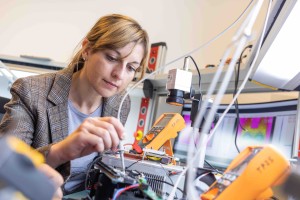EUPM – EU Project Manager
How to improve the management of European funds? A common university path for future EU Project Managers.
In the coming years, the European Union will invest an unprecedented amount of money in European history, more than 1,800 billion euros will be available to member states for post-pandemic economic and social recovery. Whether the large amount of money invested by the European Union will bring the desired results will largely depend on the ability to design and manage projects.
The FH JOANNEUM is among the promoters of an initiative that aims to define a common university path at European level for future EU Project Managers.
The project "EUPM - A new academic path for EU project managers: narrowing the gaps to enable better project design and management in Europe", coordinated by Tor Vergata University of Rome, will receive 350 thousand euros in funding for the next three years under the Erasmus + - Cooperation Partnership program and officially started in Rome on February 28, 2022.
The objective of the EUPM project is to share a common model of knowledge and skills for future professionals in the management of European funds by adapting the project management method PM2 (PM squared) developed and promoted by the European Commission.
Effective project management becomes a critical variable for recovery, but, despite this, an integrated knowledge framework for the management of European funds is still lacking and this topic still finds little space in university courses and programs. At the higher educational level, the main results will be improving the alignment of the HE system to better answer to the increasing market demand of qualified EU project managers by enriching the academic offer with a common and innovative academic path. At the level of the project beneficiaries (university students), the main outcome will be increasing student’s job opportunities in a dynamic and attractive sector through the improvement of their skills and abilities in managing EU funded projects.
Project Partners:
- Tor Vergata University of Rome (Italy)
- Polytechnic University of Madrid (Spain)
- New University of Lisbon (Portugal)
- University of Tartu (Estonia)
- University of Pardubice (Czech Republic)
- FH JOANNEUM Graz (Austria)

This project has been funded with support from the European Commission. This publication reflects the views only of the author, and the Commission cannot be held responsible for any use which may be made of the information contained therein.





